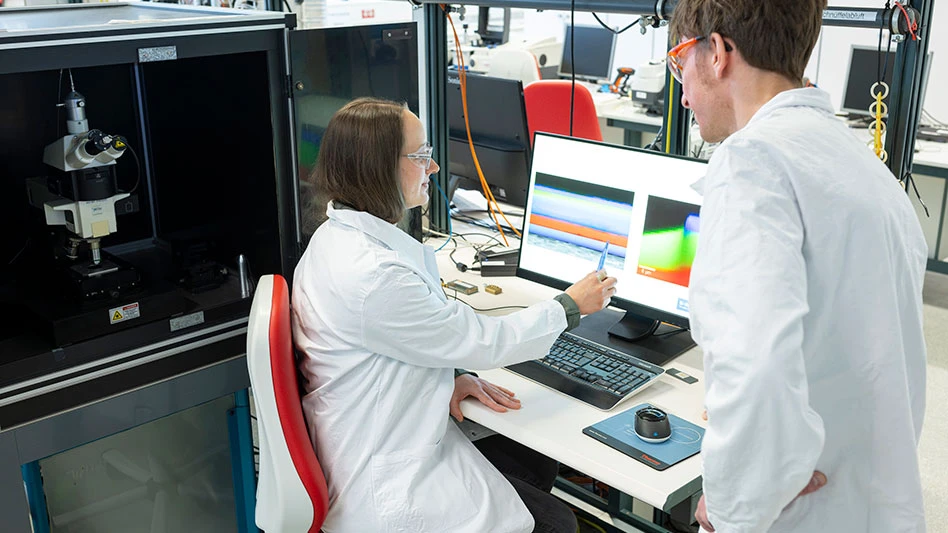
Photo courtesy of BASF
BASF has partnered with Endress+Hauser, TechnoCompound and the Universities of Bayreuth and Jena in Germany to study improving mechanical recycling of plastics. The German Federal Ministry of Education and Research (BMBF) is funding two-thirds of the 2.2 million-euros ($2.29 million) project, with the project partners providing one-third of the financing.
The SpecReK project aims combine state-of-the-art measuring techniques with artificial intelligence (AI) to identify the composition of plastic scrap during the recycling process to improve the quality of recycled plastics.
RELATED: BASF brings chemically recycled products to the US | BASF’s reciChain project to track plastics throughout their life cycles
The researchers are using spectroscopic methods that interpret how the material interacts with light to gain information about the chemical structure of the plastics with the goal of using this data to determine in real-time which plastic grades, additives and contaminants are contained in the material. In a subsequent step, an AI algorithm will recognize patterns in the measurement data and recommend which additional components should be added or how the recycling process should be adapted to improve the quality of the recycled plastic output, Germany-based BASF says.
“We do not currently have the necessary analysis tools to determine during processing exactly which components are contained in the mechanically recycled plastics,” says Bernhard von Vacano, head of the Plastics Circularity research program at BASF. “This will enable us to use more mechanically recycled plastics to produce high-quality products and to make recycling processes more efficient and sustainable.”
“With the increasing demand for high-quality recycled materials, and given the current legal framework, it will be crucial to perfectly understand the material properties and composition of mechanically recycled plastic waste and to optimize the process. In this way, we will strengthen the circular economy,” von Vacano adds.
BASF says that in cases where mechanical recycling of plastic is not technologically feasible or too complex, plastics can be brought back into the material loop via chemical recycling. Both recycling processes are important for a functioning circular economy and can complement each other, which is why the company says it is working to improve both types of recycling.
Latest from Recycling Today
- Nippon Steel acknowledges delay in US Steel acquisition attempt
- Commentary: navigating shipping regulations for end-of-life and damaged batteries
- Haber raises $44M to expand to North America
- Canada Plastics Pact releases 2023-24 Impact Report
- Reconomy brands receive platinum ratings from EcoVadis
- Sortera Technologies ‘owning and operating’ aluminum sorting solutions
- IDTechEx sees electric-powered construction equipment growth
- Global steel output recedes in November





